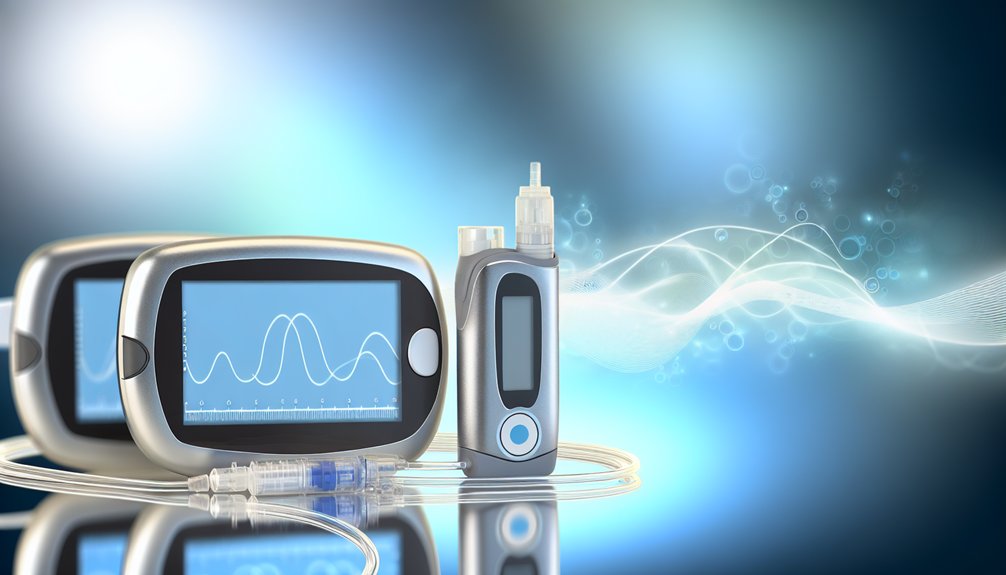Effective diabetes healthcare policy is essential for making prevention, detection, and care accessible to everyone struggling with this disease. With new technologies like continuous glucose monitors, patients can manage their diabetes better. However, high costs and lack of resources still pose real challenges. By focusing on education and telemedicine, communities can empower individuals to take control of their health. A commitment to personalized care can truly change lives, and there’s much more to explore about these impactful advancements.

Diabetes Healthcare Policy
In a world where diabetes affects millions of lives, the journey towards effective healthcare policy can feel like steering through a winding road filled with challenges and hopes. With advancements in technology and medication, healthcare providers now have tools that can change the lives of those living with diabetes. Continuous glucose monitoring (CGM) is highly recommended for insulin-treated patients, making it easier for them to manage their blood sugar levels. CGM recommended universally for all individuals on insulin.
Automated insulin delivery (AID) systems, once a dream, are now becoming a reality for many, especially for those with type 1 diabetes. This is a beacon of hope, allowing patients to focus on living their lives instead of just managing their condition. Modern wearable devices like the Apple Watch now enable real-time glucose monitoring through direct Bluetooth connections with CGM systems, offering unprecedented convenience in diabetes management.
However, this road to progress is not without its bumps. Access to these remarkable technologies often remains a hurdle due to high costs and limited availability. In low-resource settings, many still lack the basic tools needed for effective diabetes management. Policymakers must step in to guarantee that these innovations are equitably distributed.
Telemedicine and community education can offer solutions, reaching those who feel far from the advancements in diabetes care. Moreover, the importance of early detection cannot be stressed enough. With enhanced screening efforts, including the use of biomarkers, more individuals can be diagnosed earlier, preventing the progression of diabetes. Antibody screening for presymptomatic Type 1 diabetes is critical for identifying high-risk individuals.
Lifestyle changes combined with medication can make a significant difference, bringing light to those caught in the shadows of this disease. As we navigate this complex landscape, the commitment to personalized care is essential. Updated medication guidelines emphasize tailoring treatments to each patient’s unique needs.
The journey may be long, but with teamwork among healthcare providers, patients, and policymakers, there is hope for a brighter future. The road ahead may be winding, but every step taken brings us closer to effective diabetes healthcare policy that can change lives for the better.
